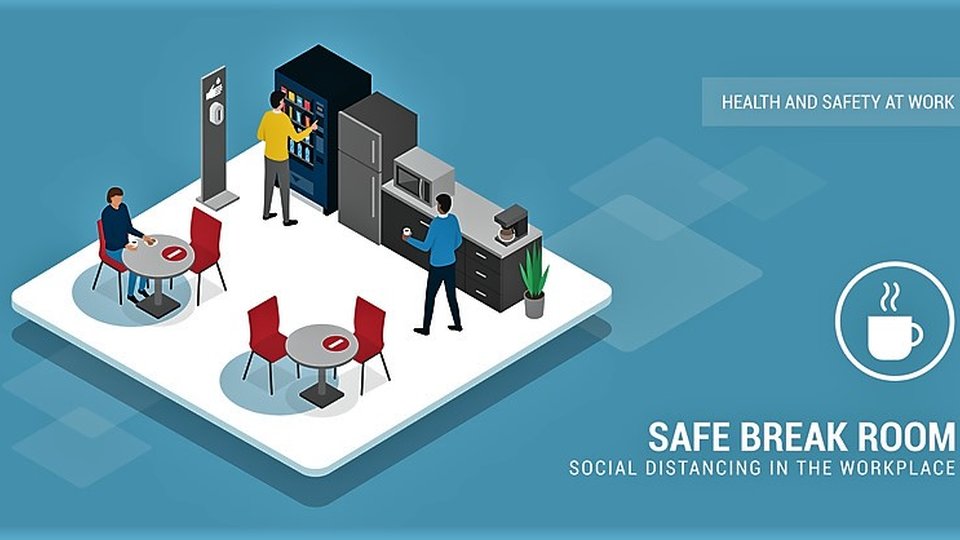Commentary
Will COVID-19 redefine convenience services?
Convenience services operators must use the present downtime to get up to speed on the safety tools they can use to allow customer locations to reopen under the 'new normal.'

July 13, 2020 by Elliot Maras — Editor, Kiosk Marketplace & Vending Times
COVID-19 brings a new era in convenience services. Not only for trying to survive in the face of record account closures, employee safety concerns and operational disruptions, but for the expertise needed to assist clients in providing safe workplaces as they prepare to reopen.
As much as businesses and organizations want to get back to work, the current situation has postponed reopening for many, if not most, for the foreseeable future.
The number of new COVID-19 cases continues to surge, with a record 66,281 reported on July 10, according to the Centers for Disease Control and Prevention.
Florida, one of the first states to try to reopen its economy, on Sunday reported the largest daily increase in positive coronavirus cases for any state since the pandemic began, according to USA Today. The 15,299 new cases represents nearly 3,700 more than any state in a single day, and nearly 500 fatalities in one week.
Unfortunate as this is, the postponement of reopenings gives convenience services operators time to get up to speed on the safety tools they can use to allow customer locations to reopen under the "new normal."
Safety innovations surge
Last week, this site presented an overview of 44 innovations designed to check visitor temperatures, dispense safety products, monitor face mask compliance, track onsite populations and more. There has been a barrage of safety innovations since the pandemic began, which this site continues to report daily.
Convenience services operators must use this downtime to provide customers the guidance they need to assure employees and visitors their workplaces are safe.
Customer locations rely on convenience services operators for the workers' and visitors' wellbeing, a responsibility that does not end with delivering meals and refreshments. Convenience services operators are uniquely positioned to offer safety guidance in a number of areas.
Operators also need to be up to speed on how their services will be affected by new worksite safety procedures, such as visitor screening and social distancing.
They may not actually provide contact tracing solutions that worksites are deploying in record numbers. But contact tracing — identifying individuals who have an infectious disease and those they came in contact with and working with them to interrupt spread of the infection — will likely impact employee break room operations.
Facilities may also redesign workflows to ensure safe distancing between employees, alter seating arrangements to improve spacing between employees, and post signage and floor decals to encourage social distancing.
Employers face challenges
As worksites reopen, employers are confronting a host of challenges which could affect their willingness to resume refreshment services.
Here in Las Vegas, casinos and hotels are struggling to balance transparency related to COVID-19 with both personal and company privacy needs. Hotel and casino workers returning to work say they want to know how many co-workers, if any, have been infected. But even companies with COVID-19 communications policies in place have struggled to follow their own directives for fear of alarming their employees.
And while social distancing has given new importance to self-service solutions for many customer facilities, there is no universal solution for all locations. A self-service kiosk removes the need for customer/employee interaction, but the kiosk must be sanitized if the customer has to touch it. Touchless devices are a recent option to keep abreast of.
Convenience services redefined?
Convenience services operators have continuously redefined themselves in the face of changing technology and customer needs. COVID-19 is but another chapter in this saga.
In the post-World War II era, there were vending operators, foodservice operators and coffee service operators, each representing a specialty unto itself. In time, some players combined these services and became known as food and refreshment service operators.
The new millennium brought micro markets and pantry services, yielding a new specialty known as convenience services.
Does COVID-19 yield a new definition?
For an update on how the coronavirus pandemic is affecting convenience services, click here.
About Elliot Maras
Elliot Maras is the editor of Kiosk Marketplace and Vending Times. He brings three decades covering unattended retail and commercial foodservice.
 ChatGPT
ChatGPT Grok
Grok Perplexity
Perplexity Claude
Claude






